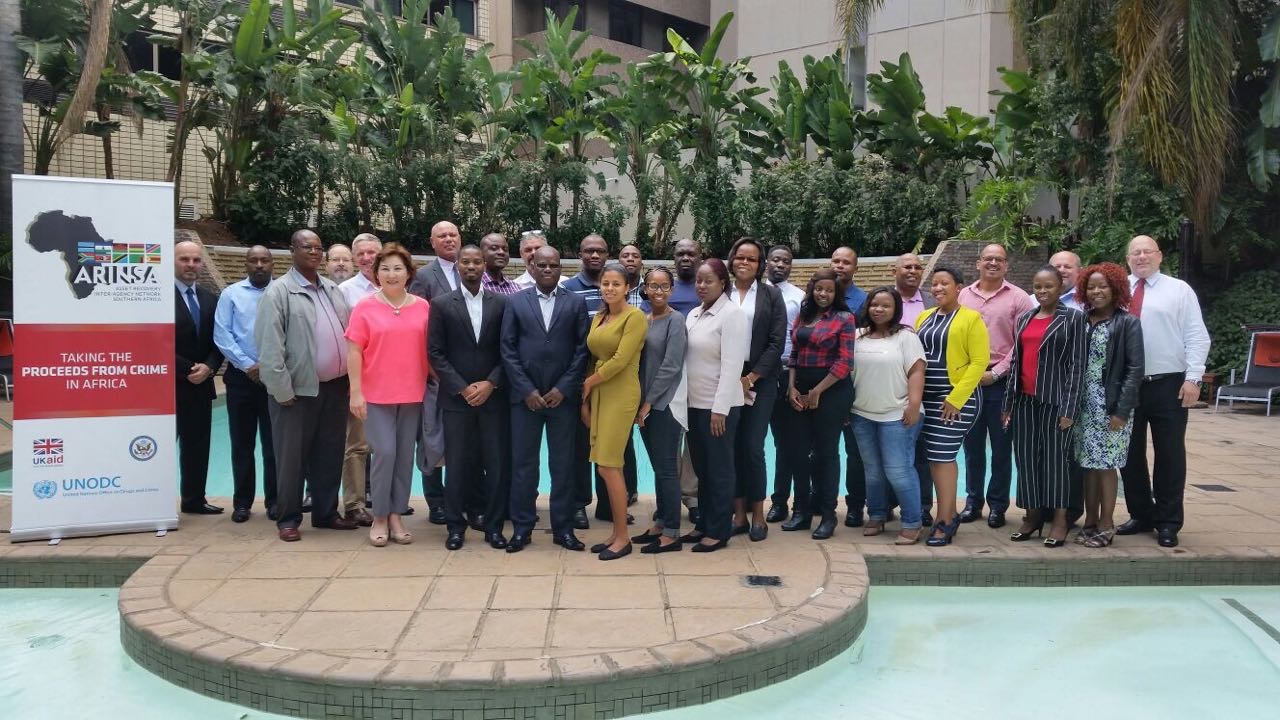UNODC Sub-regional Workshop on Taking Proceeds from Wildlife Crime: 22 – 25 November 2016
 Pretoria, South Africa. Established in 1997, UNODC’s Global Programme against Money Laundering, Proceeds of Crime and the Financing of Terrorism (GPML) seeks to assist member states in complying with all UN Conventions and other instruments that concern Anti-Money Laundering (AML) and Counter-Terrorist Funding (CTF). Operating notably under the mandate of the 2000 Palermo Convention, the 2003 Merida Convention, and the 40 recommendations of the Financial Action Task Force, its purpose is to raise awareness, build institutions, and train legal, financial, and law enforcement authorities at a national/regional level to develop necessary AML/CFT infrastructure to effectively address all GPML-related activities within their jurisdictions.
Pretoria, South Africa. Established in 1997, UNODC’s Global Programme against Money Laundering, Proceeds of Crime and the Financing of Terrorism (GPML) seeks to assist member states in complying with all UN Conventions and other instruments that concern Anti-Money Laundering (AML) and Counter-Terrorist Funding (CTF). Operating notably under the mandate of the 2000 Palermo Convention, the 2003 Merida Convention, and the 40 recommendations of the Financial Action Task Force, its purpose is to raise awareness, build institutions, and train legal, financial, and law enforcement authorities at a national/regional level to develop necessary AML/CFT infrastructure to effectively address all GPML-related activities within their jurisdictions.
With the above considered, UNODC’s Regional Office for Southern Africa (ROSAF) recently hosted a 4-day Sub-regional Workshop on Taking Proceeds from Wildlife Crime, aimed at developing participant understanding of the integral role wildlife trafficking plays in global organised crime (with specific focus on Southern Africa’s rhino poaching and illegal ivory trade, which has been linked to funding terrorism). The workshop followed up on the recommendations and outcomes of the 2014 Recovering Proceeds from Wildlife and Timber Trafficking: African and Asian Experiences, and the 2015 Typology Study produced by the Eastern and Southern African Anti-Money Laundering Group (ESAAMLG), to ensure steady regional plan for future operations.
Walking into the conference room consisting mostly of circular tables, participants were made well aware of the fact that this would be an interactive session demanding attention to guest-speaker presentations, and engagement with fellow seated finance/legal representatives hailing from all across the Southern Africa region. A hush fell over the jargon-filled conversations as host speakers began the busy work week.
Each workshop day, though mentally demanding, was stimulating and rich of resources. Participants were exposed to new knowledge, specialised techniques, and had to analyse real-life case studies to better identify organised crime in their jurisdictions, and quicker seize/confiscate proceeds of crime through improved inter-agency coordination. UNODC Adviser for Asset Forfeiture, AML, and Proceeds of Crime Fitz-Roy Drayton recounted the effectiveness of such coordination where the Asset-Recovery Inter-Agency Network for Southern Africa (ARINSA) efforts froze suspected Mauritian assets held in Switzerland in less than a week of notification (where coordinating and engaging with international authorities can take years).
Apart from having possibly met new contacts and receiving a certificate of attendance on the last day, participants also walked away with understanding of the complex value chain that gets Africa’s high supply of wildlife products to Asia’s high-demand markets for such illegal goods, the shocking level of money being made on such activities (where illegal logging itself contributes to an annual revenue of USD 380 million), incarcerating suspects who only play small parts in organised-crime activities, and the possible long-term effects it has on the environment (where illegal logging causes less production of oxygen, and ecosystems permanently damaged by human activity).
NB. For more pictures please go to http://arinsa.org/mod/lightboxgallery/view.php?id=116
